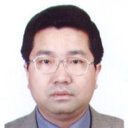Cancer Epidemiology 2019-Jun
Body mass index and the risk of head and neck cancer in the Chinese population.
Seuls les utilisateurs enregistrés peuvent traduire des articles
Se connecter S'inscrire
Le lien est enregistré dans le presse-papiers
Mots clés
Abstrait
RESULTS
Compared to normal BMI at interview (18.5-<25 kg/m2), being underweight (BMI < 18.5 kg/m2) was associated with a higher HNC risk (OR = 2.71, 95% CI 1.40-5.26). Additionally, obesity (BMI > 30 kg/m2) was associated with a lower HNC risk (OR = 0.30, 95% CI 0.16-0.57). Being underweight at age 20 was also associated with an increased risk of HNC. However, being underweight at 5 years or 2 years before interview was not associated with a higher risk of HNC.

